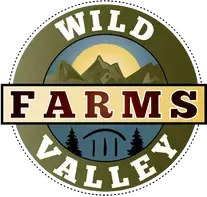|
My Great Grandmother’s garden notebook was filled with flower sketches, garden layouts, and notes in the margins as she noticed through trial and error the relationship between plants as they grew side by side. Finding that different varieties thrive when planted together as they provide mutual benefits to each as they grow. As we explore this approach most known as companion planting, we will discover an increase in soil nutrients, see better yields, chase away pests, strengthen resilience against disease and attract pollinators. Remember that as always, the region in which you garden can influence the effectiveness of companion planting.
As we add companion planting into our layout, we can set our plants up to succeed knowing that corn, tomatoes, and rhubarb require more nitrogen. We can pair them with peas, beans, and clover which help fix the nitrogen levels in the soil. Another perfect partner for not only adding nutrients to your soil, but also absorbing water and decreasing nutrient run off, is using Wild Valley Farms Wool Pellets. This will help your garden grow stronger and more abundantly.
Planting varied sizes of plants together can also provide physical support and increase yield. Placing plants that thrive in partial sun and shorter in growth height, like lettuces and greens, will do great under taller plants such as peppers and tomatoes. Strong bushes can protect young bush beans and other plants from wind damage. When using companion planting for pest control there are three approaches. The first is planting to deter certain insects away from the area protecting the susceptible plants. The second is attracting and catching the insects and third is attracting friendly insects to the area to manage the issue for you. For example, aphids love gardens and if you want to deter aphids plant garlic and chives with your lettuce. Alyssum will attract hover flies and other beneficial insects that can assist in controlling your aphids from harming the greens in your garden.
Most diseases are of a fungal origin, making garlic and its high sulfur content a natural fungicide. Chives can help protect your rose bushes from black spot and even decrease scab in apple trees. The presence of pollinators is vital for your garden. Creating an inviting environment for bees, hummingbirds, and butterflies will add to the beauty and health of your whole garden. Providing plants like sunflowers, honeysuckle, and a butterfly bush will attract them to the area. A wide variety of crops including melons need pollinators to produce a healthy crop. By adding herbs like fennel and dill near your melons it will not only add to the flavor buy will increase your crop yield. As you experiment with companion planting and adjust the layout of your garden accordingly you will be amazed with the results. The relationship between two plants can easily form a successful ecosystem that supports each other and the complete garden. Whether your goal is to increase soil nutrients, see better yields, chase away pests, strengthen resilience against disease, or attract pollinators, companion planting can provide a balanced approach to your gardening needs.
0 Comments
|
Archives
May 2024
Categories
All
|





 RSS Feed
RSS Feed

